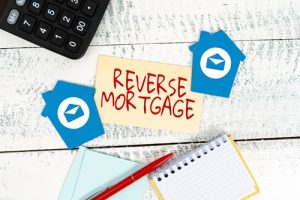
There are many misconceptions about a reverse mortgage, which often discourages homeowners from exploring this financial option. You might have heard claims like, “The bank takes your home with a reverse mortgage” or “You can lose your home if you don’t make payments.”
Fortunately, these myths are not true. With a reverse mortgage, ownership of your home remains with you, even though the lender places a lien on the property to secure the loan.
How Does a Reverse Mortgage Actually Work?
To begin, a reverse mortgage lets homeowners who are at least 62 years old to convert a part of their home equity into cash. Unlike a traditional mortgage, this loan does not require monthly repayments. Instead, repayment occurs only when you meet certain conditions, such as selling the property or permanently moving out.
For instance, you may trigger the repayment if you fail to maintain the home, pay property taxes, or keep up with insurance. However, if these requirements are met, you can stay in your home while enjoying the financial benefits of the loan.
Furthermore, these mortgages offer flexibility in how you receive funds. Options include a lump sum, monthly payouts, a line of credit, or a combination of these methods. This means you can choose the approach that best suits your financial needs.
What Happens When the Loan Becomes Due?
The loan balance becomes due only after certain events, which often include selling the home, moving out permanently, or the passing of the last borrower. When this happens, repayment is usually straightforward. Most homeowners or their heirs sell the home and use the proceeds to pay off the loan.
Alternatively, if your family wants to keep the property, they can repay the loan through other means. For example, they could use savings or apply for a conventional mortgage.
Furthermore, this type of mortgage has the same structure as a non-recourse loans. This means that even if the loan balance exceeds the home’s value, neither you nor your heirs will owe more than what the property is worth at the time of sale.
Why Myths About Ownership Persist
One common misconception is that this type of mortgage in Charleston SC transfers ownership of the home to the lender. However, this is far from the truth. While the lender has a lien to secure the loan, the title remains in your name. This is no different from a traditional mortgage, where a lien is placed as collateral without affecting ownership.
For example, homeowners often misunderstand the role of liens. While they ensure the loan is repaid, they do not give the lender any rights to sell or control the home during your lifetime.

Benefits of Reverse Mortgages
There are several reasons why reverse mortgages in Charleston SC are worth considering. To start, they provide financial flexibility, allowing you to access your home equity without selling your property. Additionally, they do not affect your eligibility for benefits like Social Security or Medicare, making them an excellent option for retirees.
Another benefit is the variety of payout options available. Whether you need a lump sum to cover a major expense or prefer steady monthly income, reverse mortgages can be tailored to your specific needs.
Moreover, non-recourse protection ensures peace of mind for you and your heirs. If the home’s value decreases, you will never owe more than what it is worth when the loan is repaid.
What Does a Reverse Mortgage Mean for Your Heirs?
For homeowners planning to leave their property to heirs, this type of mortgage offers flexibility. When the loan becomes due, heirs can either sell the home or repay the loan and retain ownership.
For instance, if the property’s value has appreciated, the proceeds from the sale may exceed the loan balance, leaving additional funds for the heirs. Alternatively, if they choose to keep the home, they can pay off the loan for 95% of its current appraised value, even if the loan balance is higher.
Tips to Make the Most of a Reverse Mortgage
If you’re considering this type of mortgage, understanding the terms and responsibilities is crucial. Always ensure that you meet the basic requirements, such as living in the home as your primary residence and keeping up with property maintenance.
Additionally, working with South Carolina Reverse Mortgage Services can help you navigate the process with confidence. For example, they can explain how the loan fits into your overall financial plan, ensuring it aligns with your goals.
Reverse mortgages are a powerful financial tool when used wisely. They offer the chance to unlock home equity while maintaining ownership and staying in your home. If you’re looking for a solution that provides flexibility and peace of mind, this might be the right choice for you.
Ready to explore reverse mortgages? Call South Carolina Reverse Mortgage Services now to learn more and take the first step toward financial flexibility!
